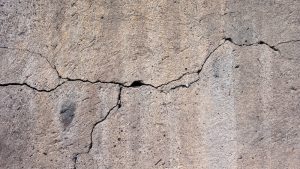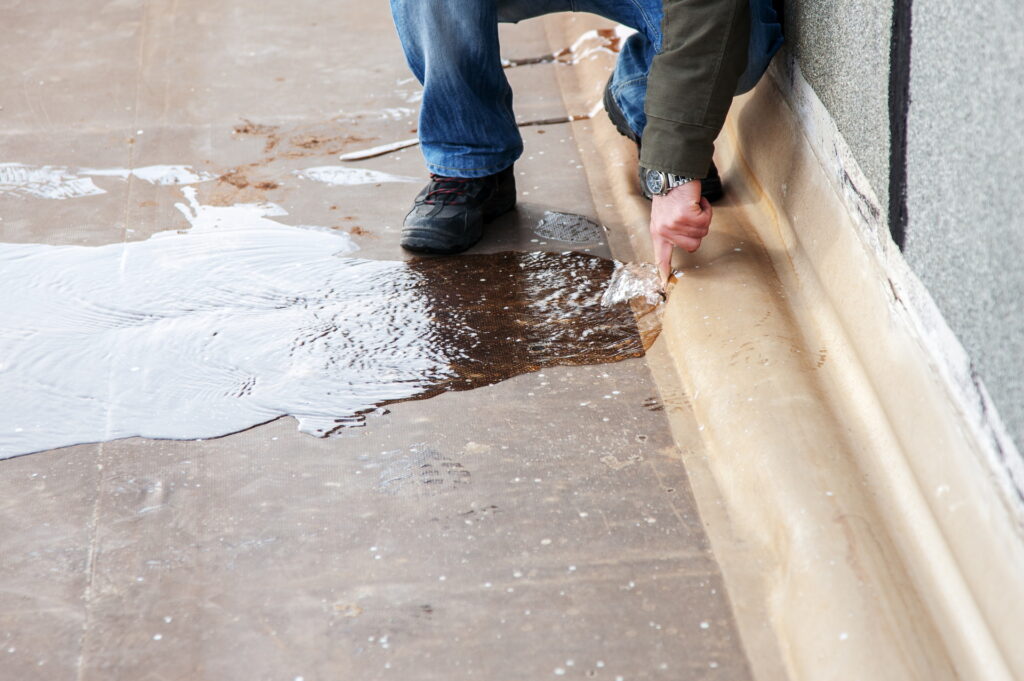Are you familiar with the term “slab leak”? If not, you’re not alone. Slab leaks are a lesser-known but potentially serious issue affecting homes, especially those with concrete slab foundations. In this blog post, we’ll delve into slab leaks, their causes, how common they are, signs to watch out for, and what steps to take if you suspect a slab leak in your Evanston home.
Reliance Plumbing Sewer & Drainage, Inc. Blog: Posts Tagged ‘Slab Leak’
Slab Leaks: All You Need to Know!
Monday, April 22nd, 2024The Unfortunate Reality of Slab Leaks
Monday, July 5th, 2021 For those people who have already dealt with a slab leak, the term is pretty scary. It describes a leak that occurs in either the hot water (more common) or cold water lines that lie underneath your concrete foundation, and is a problem for the homes it happens in. Not only do slab leaks create a lot of water waste, they also can damage the property, lead to the growth of mildew and mold, plus add extra strain to the water heater if the leak is occurring in the hot water lines.
For those people who have already dealt with a slab leak, the term is pretty scary. It describes a leak that occurs in either the hot water (more common) or cold water lines that lie underneath your concrete foundation, and is a problem for the homes it happens in. Not only do slab leaks create a lot of water waste, they also can damage the property, lead to the growth of mildew and mold, plus add extra strain to the water heater if the leak is occurring in the hot water lines.
Our trained and experienced professional plumbers are well equipped to accurately locate and repair these issues. But what causes a slab leak to begin with? Shouldn’t a plumbing pipe that is set down in your concrete be pretty protected from the damage that can lead to pipe breaks and pinhole leaks?
Well actually, there are a few different things that can create a slab leak. Read on to learn more.
Beware the Insidious Slab Leak!
Monday, December 23rd, 2019 There is no plumbing system anywhere that is 100% flawless. At some point or another, you’ll need a clog cleared out or a pinhole leak repaired. You may even need a sewer line cleared out of tree roots or a leaky faucet replaced. There is one plumbing problem in particular though that is especially insidious, and that’s a slab leak.
There is no plumbing system anywhere that is 100% flawless. At some point or another, you’ll need a clog cleared out or a pinhole leak repaired. You may even need a sewer line cleared out of tree roots or a leaky faucet replaced. There is one plumbing problem in particular though that is especially insidious, and that’s a slab leak.
What is it that makes a slab leak so bad? After all, aren’t all leaks created equal? Well, that’s something we’re going to explore below—and we will also provide some tips for helping you spot the signs of a slab leak so you can take quick action if and when you encounter one in your home. Give us a call if you have any questions or concerns!
The Single Biggest Plumbing Disaster You Want to Avoid
Monday, April 1st, 2019 Okay, that might be arguable, but trust us, this is one plumbing problem you just do not want to have, especially considering how far it might have already progressed—and that’s a slab leak.
Okay, that might be arguable, but trust us, this is one plumbing problem you just do not want to have, especially considering how far it might have already progressed—and that’s a slab leak.
Let’s face it, most of the plumbing in your home is hidden from sight. This makes it difficult to tell exactly where (or even if) a leak is occurring. Detecting and locating leaks often takes a skilled plumber with the right type of equipment to pinpoint the leak’s exact location in order to repair or replace the pipe with the least amount of damage possible.
But the slab leak—that’s tricky. A slab leak is one that occurs beneath the concrete foundation of your home. It can happen with either the cold water or hot water lines, though it’s more common in the hot water lines (80% of all slab leaks occur here). These leaks waste significant amounts of water and can lead to structural damage to your home, not to mention the development of harmful mold and mildew. Leaks in your hot water line also mean that your water heater is wasting energy.
Don’t Underestimate the Damage a Slab Leak Can Do!
Monday, April 2nd, 2018 Wouldn’t it be nice if you never had a problem with your plumbing system? Unfortunately, it’s pretty rare that homeowners never have a plumbing problem—no system is perfect, after all. Scheduling maintenance and other plumbing services with trained professionals will definitely help keep your system as reliable as possible, but your plumbing is put through a lot of work, and you may eventually encounter an issue.
Wouldn’t it be nice if you never had a problem with your plumbing system? Unfortunately, it’s pretty rare that homeowners never have a plumbing problem—no system is perfect, after all. Scheduling maintenance and other plumbing services with trained professionals will definitely help keep your system as reliable as possible, but your plumbing is put through a lot of work, and you may eventually encounter an issue.
Hopefully, your plumbing woes will be nothing more than a minor leaky faucet or slow-moving drain. In some case though, the issue can be more serious and lead to significant property damage. A prime example of this is a Glenview, IL slab leak.
How to Detect a Slab Leak
Tuesday, September 8th, 2015Slab leaks constitute one of the biggest problems a homeowner might face: an otherwise normal leak in a length of pipe placed under the foundation or the house, or in some cases even embedded inside the cement of the foundation. The leak itself is less of an issue than the difficulty in reaching it, as well as the immense difficulty in realizing it’s there in the first place. By the time the homeowner realizes that something’s amiss, the damage has been done. Here in Chicago, IL, professional plumbing services have the equipment to detect a slab leak and begin repair proceedings. But you have to spot the signs of trouble before you can call them in. Here’s a few brief ways to detect a slab leak in your home.
3 Ways to Detect a Slab Leak
Monday, June 29th, 2015A slab leak is a significant problem in your home, mostly because it can be very difficult to access or detect. The problem arises when a pipe built into the foundation of your house, under a concrete patio or similar inaccessible spot, springs an otherwise ordinary leak. Modern plumbers can use advanced technology to pinpoint the leak and make repairs, but the main problems come with detecting it. The longer a slab leak goes, the more damage it causes, and while Chicago, IL has its share of quality plumbers, they can’t do much good if you don’t know how to spot the signs of trouble when they arise. Here are 3 ways to detect a slab leak that can save you a great deal.

